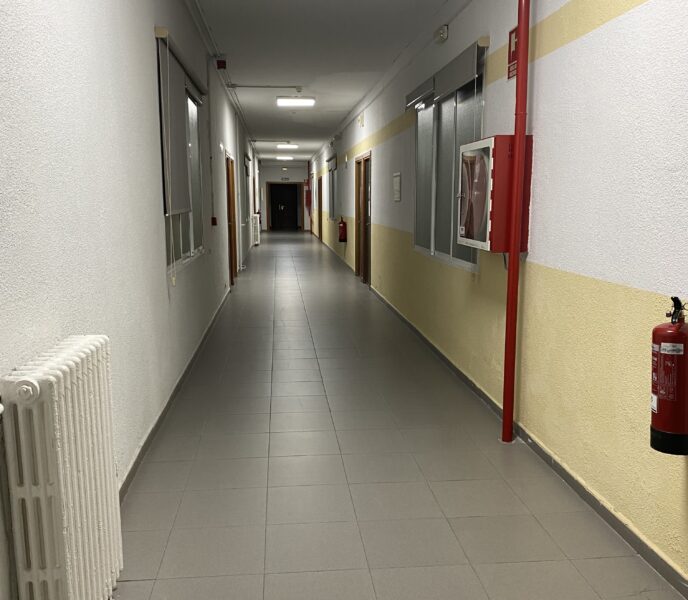
The stress of finding a flat for my year abroad has gotten to me and I impulsively applied to one of the student residences offered by my host university in Madrid. To my surprise, my application was soon accepted, taking the burden off my shoulders. As many lettings advertised online prove to be fake, I was thankful that I avoided the risk of getting scammed in the sunny capital of Spain, so I could tick one of my chores off the list. However, I was not prepared for the cultural shock that I would experience on arrival.
Spanish university accommodations are nothing like the ones in England. The difference stems from the very idea of what a student residence means. In Exeter, accommodation is just a place for you to stay and focus on your degree; in many “colegios mayores“ (the general name for a student residence in Spain) that focus is distorted. Often the studying doesn’t matter so much and what is more important is the bond that one establishes with the place they live in. The accomodation’s acceptance system works on a basis of comparing school or university grades that a student has achieved and granting a place to a person that got the best results in exams or coursework. I have heard that many students there chose an easier degree, just so they could get good enough grades to stay in the accommodation.
Often the studying doesn’t matter so much and what is more important is the bond that one establishes with the place they live in
What was the most shocking to me was the hierarchal structure that maintained the gap between the “nuevos“ and “veteranos“ (freshers and veterans). If you were older and stayed there for more than a year, you got special privileges such as a private room (all first years were assigned with a roommate) and the chance to organise events alongside the headmaster (yes, an old man living in a student accommodation). For the first few weeks, the eager “veterans“ organised activities for the confused and lost freshers, however, at times those seemed more like a type of initiations that one has to pass in order to be accepted into the community. I witnessed them interrogating freshers, asking them to learn their names, what they study and which room they live in.
To my surprise, after a week or so they scheduled an official exam, based on that questions they kept asking. Because I was an exchange student, they allowed me to not participate as I explained to them that I didn’t feel comfortable writing it in Spanish (which is always a good excuse, even when I know the language).
Obligatory, official reunions have been also organised throughout the year. The headmaster is often asked to speak about how the students have to “obey” all of the rules of the accomodation and he tends to encourage everyone to both study and participate in the events organised by veterans. One of those obligatory meetings was with special appearance of university officials and during the event, the residence claimed that they have been running for 60 years without “novatadas“ (initiations). But talking from experience, I witnessed situations that I believe would fall into that category. Shouting and trying to assert dominance by bossing the new students around could definitely contribute to the atmosphere of a secret society, in which you have to own your place.
The residence claimed that they have been running 60 years without “novatadas“ (initiations) I witnessed situations that I believe would fall into that category
However, some of the facilities that are provided can make up for the turbulent first weeks and the veterans got bored and stopped the initiations after the new members were accepted into the community. There are two common rooms, a private cinema, gym and laundry services included in the price. There is also a canteen that serves meals three times a day, with the special appearance of churros for breakfast every Sunday and whenever there is a special holiday.
Staying in a “colegio mayor“ has definitely shaped my understanding of what studying in Spain means for a Spanish person. Staying in this type of residence is popular amongst young university students and is connected to a strong sense of pride and prestige. The insight into the not so talked about Spanish university culture has made me feel closer to the country and it’s undiscovered traditions, the good and the bad.


